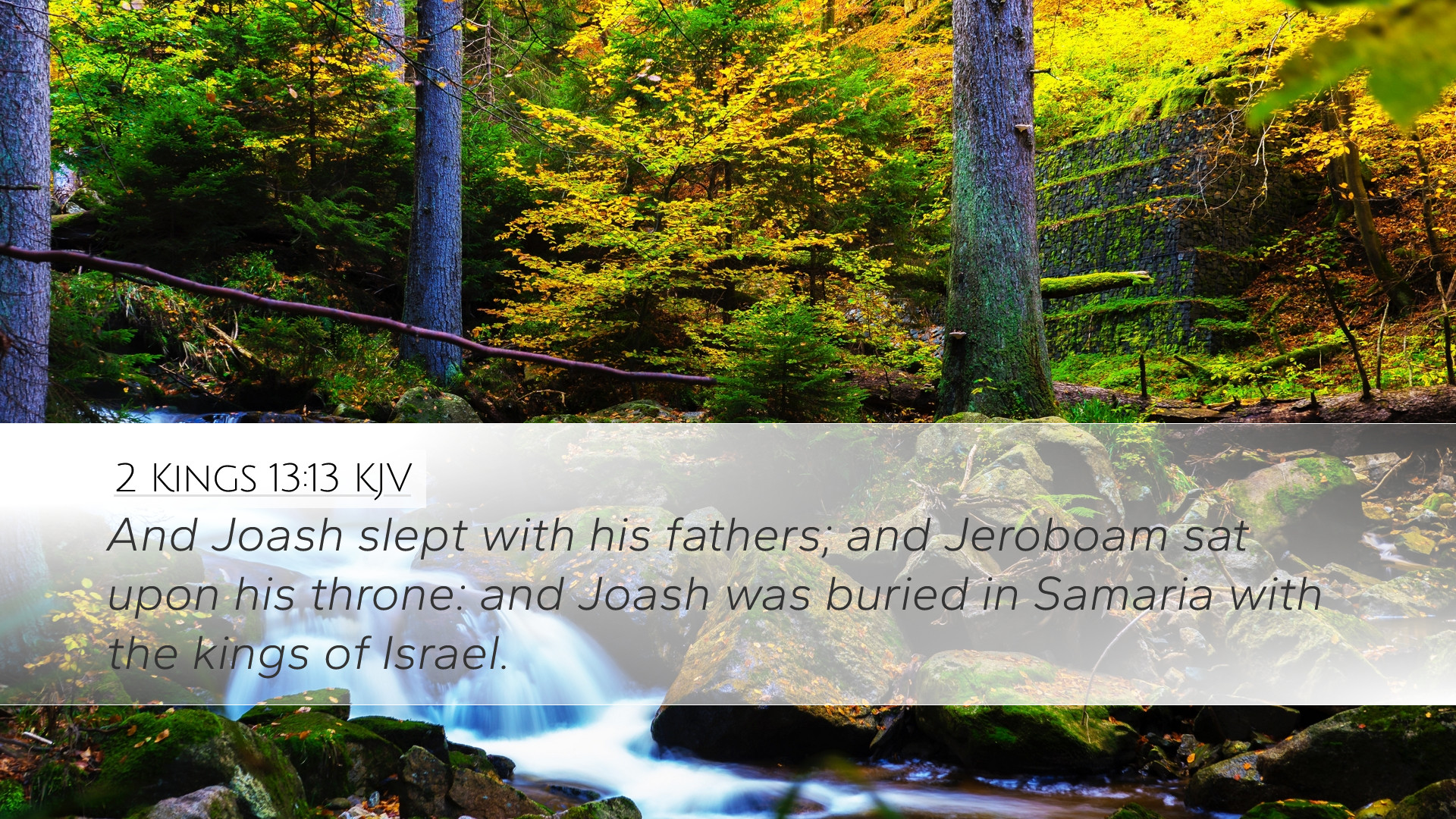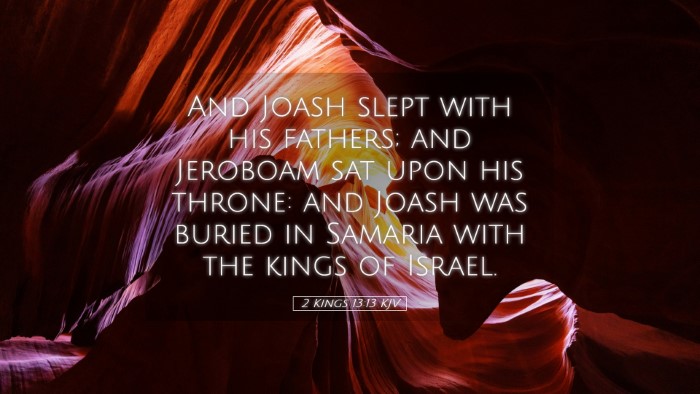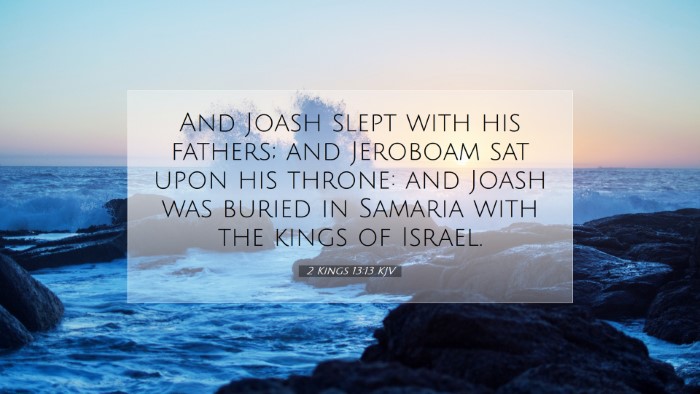Commentary on 2 Kings 13:13
Bible Verse: "And Jehoahaz slept with his fathers; and they buried him in Samaria: and Joash his son reigned in his stead." (2 Kings 13:13)
Introduction
This verse serves as a summary of the reign of Jehoahaz, highlighting both his death and the succession of his son, Joash. It encapsulates significant theological implications pertaining to Israel's kingship, divine judgment, and the continuity of leadership among the northern kingdoms.
Contextual Background
Jehoahaz, the son of Jehu, ruled over Israel and his reign was marked by a decline in spiritual fidelity and national integrity. This verse concludes his reign with a focus on his burial and the beginning of Joash's reign. Ellen White, in prophetic interpretation, indicates that Jehoahaz's reign reflects a period steeped in sin, which ultimately led to God's judgment upon the nation.
Insights from Matthew Henry
Matthew Henry's Commentary offers rich theological insights into 2 Kings 13:13. He emphasizes the pattern of succession in Israel's monarchy, often marked by moral bankruptcy.
- Legacy of Jehoahaz: Henry underscores that Jehoahaz did not fully turn his heart towards God, thereby bringing about a partial fulfillment of prophetic judgments.
- Judgment and Justice: The death and burial signify not only the end of a king but also an indication of the moral decay that characterized his reign—suggesting that he was judged not by human standards but by divine ones.
- Divine Sovereignty: God’s sovereignty remains through the succession of leadership, providing an affirmation that He remains in control despite the people’s rejection of Him.
Insights from Albert Barnes
Barnes' Notes on the Bible reinforce the importance of this verse within the narrative of Israel's kings. Barnes notes the political and spiritual implications of Jehoahaz's reign.
- Political Implications: The actions of Jehoahaz are reflective of a broader context of rebellion against God that ultimately led to a weakened national state.
- Successive Reign: The transition to Joash is not merely a succession but also a continuation of a dynasty that struggles under the weight of past transgressions.
- Prophetic Context: This change in leadership is intrinsically tied to the prophecies regarding Israel's kings, making it essential to understand Jehoahaz's spiritual failures as a backdrop to future kings.
Insights from Adam Clarke
Adam Clarke's Commentary provides a critical assessment of the theological implications of Jehoahaz's life and legacy.
- The Nature of Jehoahaz's Rule: Clarke articulates that Jehoahaz's life encapsulates a warning against spiritual complacency and the inevitable result of sin, which invites divine discipline.
- Burial and Respect: His burial is portrayed as a formal acknowledgment of his position, though not necessarily a commentary on his spiritual state.
- Future Hope: In transitioning to Joash, Clarke suggests a glimmer of hope, as scholars often highlight the potential for reform within new leadership, contrasting Jehoahaz’s unfaithfulness.
Theological Reflections
In light of these commentaries, several theological themes emerge:
- God's Sovereignty: Despite the failures of the kings, God remains sovereign over Israel, orchestrating the rise and fall of rulers according to His divine purposes.
- Sin and Judgment: The narrative serves as a powerful reminder of the consequences of sin not just personally but also nationally—teaching that unfaithfulness leads to severe repercussions.
- Hope and Restoration: The movement from Jehoahaz to Joash can be viewed prophetically; it hints at the possibility of renewal and restoration even amidst relational estrangement from God.
Practical Applications
For pastors, students, and scholars, this passage opens avenues for reflection and teaching:
- The Weight of Leadership: Leaders within the church should be mindful of their spiritual journey and its impact on those they influence.
- Importance of Spiritual Integrity: The legacy of Jehoahaz acts as a sobering reminder about the necessary commitment to God, accounting for the spiritual state of the culture.
- Hope for Renewal: No matter the history or failures of leaders, there is always the potential for new beginnings with God, emphasizing the hope we have through Christ.
Conclusion
2 Kings 13:13 encapsulates critical lessons on leadership, divine judgment, and the continuation of God's plan for His people. It prompts believers to examine their spiritual walk and the impacts of sin while instilling hope that transformation and renewal are always possible under God's grace.


